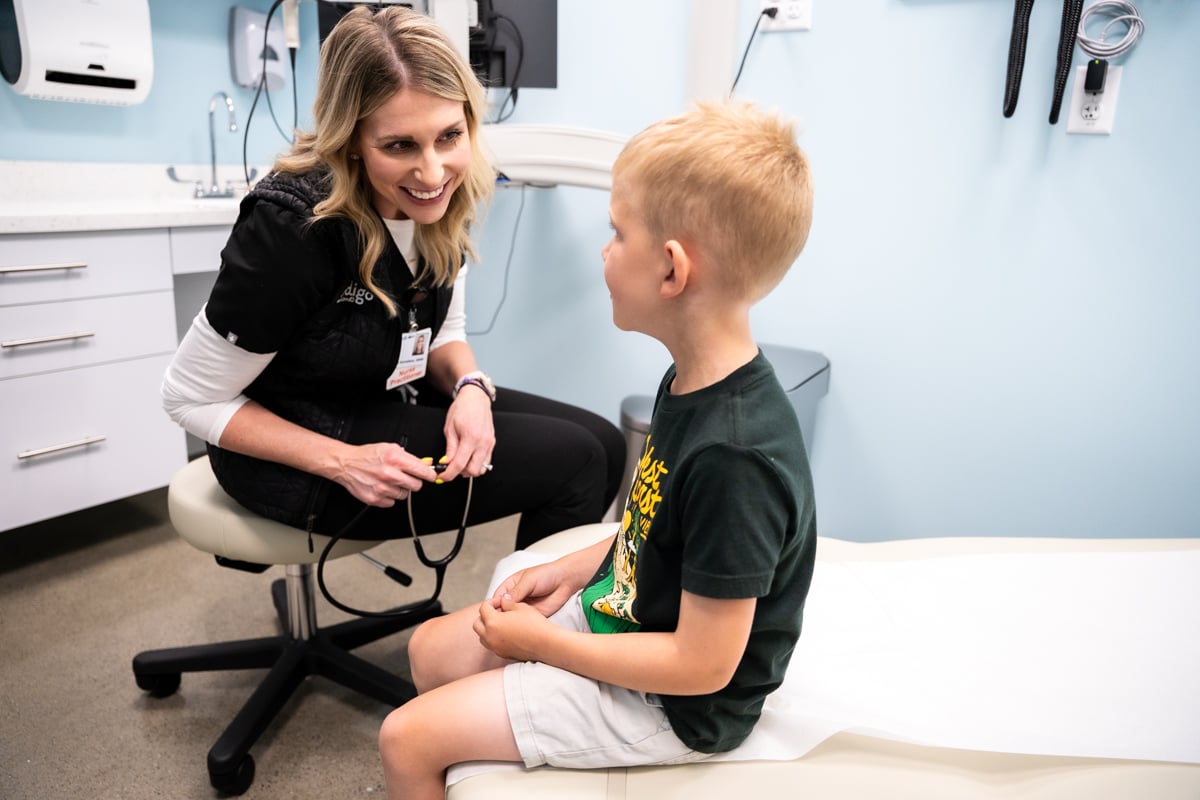When it comes to fevers, there’s good news and there’s bad news.
While a fever is the body’s natural way of fighting off viruses and bacteria, that run-down, achy, just-plain-crumby feeling that comes with it isn’t a walk in the park. And this year, with COVID-19 in the mix, cause for concern is understandable.
It’s important to keep close tabs on fevers while you or your little ones are under the weather. It’s also vital to understand the common causes and symptoms, what to do to ease the discomfort and when a fever requires medical attention.
What causes a fever?
When viruses and bacteria attack the immune system, body temperature rises to fight off the unwelcome invaders. Fevers are especially common during cold and flu season. The CDC estimates there were around 17.3 to 20.1 million flu-related medical visits during the 2018-2019 flu season.
Fevers can also be a symptom of COVID-19, infection and food poisoning. In a nutshell, it isn’t always easy to pinpoint what’s causing the thermometer to head past 98.6 degrees. That’s why it’s a good idea to have a medical professional get to the bottom of what’s causing it.
Signs of a fever
When your body works overtime to battle what’s making you sick, a fever can take a toll. Beyond your simmering forehead, the most common effects of fever include:
- Headache
- Chills/shivering
- Aching muscles
- General feeling of weakness
- Sore eyes
- Loss of appetite
- Dehydration
- Swollen lymph nodes
Infants or young children who have a fever may also experience:
- Greater irritability than usual
- Lethargy
- Flushed skin
- Paleness
- Fewer wet diapers
- Refusal to eat, drink or breastfeed
A fever is rarely a sign of a medical emergency, but if you are experiencing hallucinations, throat swelling, severe headache or breathing difficulties, you should get medical treatment right away at your nearest emergency department.
How should you treat a fever?
If you develop a fever, there are simple ways to treat it at home. Take fever reducers such as acetaminophen or ibuprofen, drink plenty of fluids to rehydrate your body, and get plenty of rest. A lukewarm bath may ease muscle aches and weakness.
If your child has a fever, acetaminophen or ibuprofen will help soothe discomfort. If your child is under the age of 2, contact your pediatrician or pharmacist for the right dose. Make sure your child gets enough fluids to prevent dehydration.
If a bacterial infection (ear infection, strep throat) is the cause of fever, your doctor may prescribe antibiotics.
If you have questions or concerns about treatment and medications, feel free to ask the medical professionals at Indigo Health.
How can a fever be prevented?
The best way to prevent fevers is to reduce the opportunities for viruses and bacteria to enter your body.
- Practice good handwashing hygiene. When soap and water aren’t handy, use hand sanitizer or antibacterial wipes.
- Avoid sharing food or beverages.
- Avoid close contact with people who are sick.
- Cover coughs and sneezes with a tissue.
- Use masks to protect against COVID-19. This simple step is proven to be most effective way to slow the spread of coronavirus and keep people from catching it.
- Make sure children know and practice good hygiene habits. That includes teaching them not touch their mouth, eyes and noses—easy avenues for viruses and bacteria to enter the body.
Should I go to Indigo?
If you or a loved one has a fever and you’re concerned, don’t sweat it out on your own. Delaying treatment could prolong the fever. The first step is to keep a cool head, then evaluate the symptoms to determine the best treatment option.
Visit your nearby Indigo Urgent Care if:
- Your fever is persistent, and you have symptoms related to a respiratory infection, urinary tract infection, gastroenteritis or skin infection.
- Your infant or young child has a persistent fever for more than a few days. Younger children may be more vulnerable to illnesses, especially if they're in daycare or interact with new people regularly.
If your infant is under 3 months old and has a rectal temperature over 100.4 degrees Fahrenheit, contact your pediatrician and go to the nearest ER for a thorough evaluation.
- You’re concerned your symptoms may be related to COVID-19. Anyone with any symptom of COVID-19 can be tested at Indigo Urgent Care. Along with a fever that worsens over time, additional symptoms include shortness of breath, cough, nausea, vomiting, diarrhea, muscle aches, fatigue, headache, runny nose, congestion and chills.
If you suspect your fever is a symptom of COVID-19, schedule an appointment in advance, if possible. If you’re experiencing more severe symptoms such as worsening shortness of breath, chest pain or a worsening chronic medical condition, seek care at your nearest emergency room right away.
Our friendly medical professionals will help diagnose the cause of your fever and recommend the best course of treatment. Indigo Health is open from 8 am to 8 pm every day, including weekends and holidays.
Schedule an appointment online, and learn more about the extra precautions we’re taking to keep you safe when you visit. We’ll get you on your way to feeling better fast.


